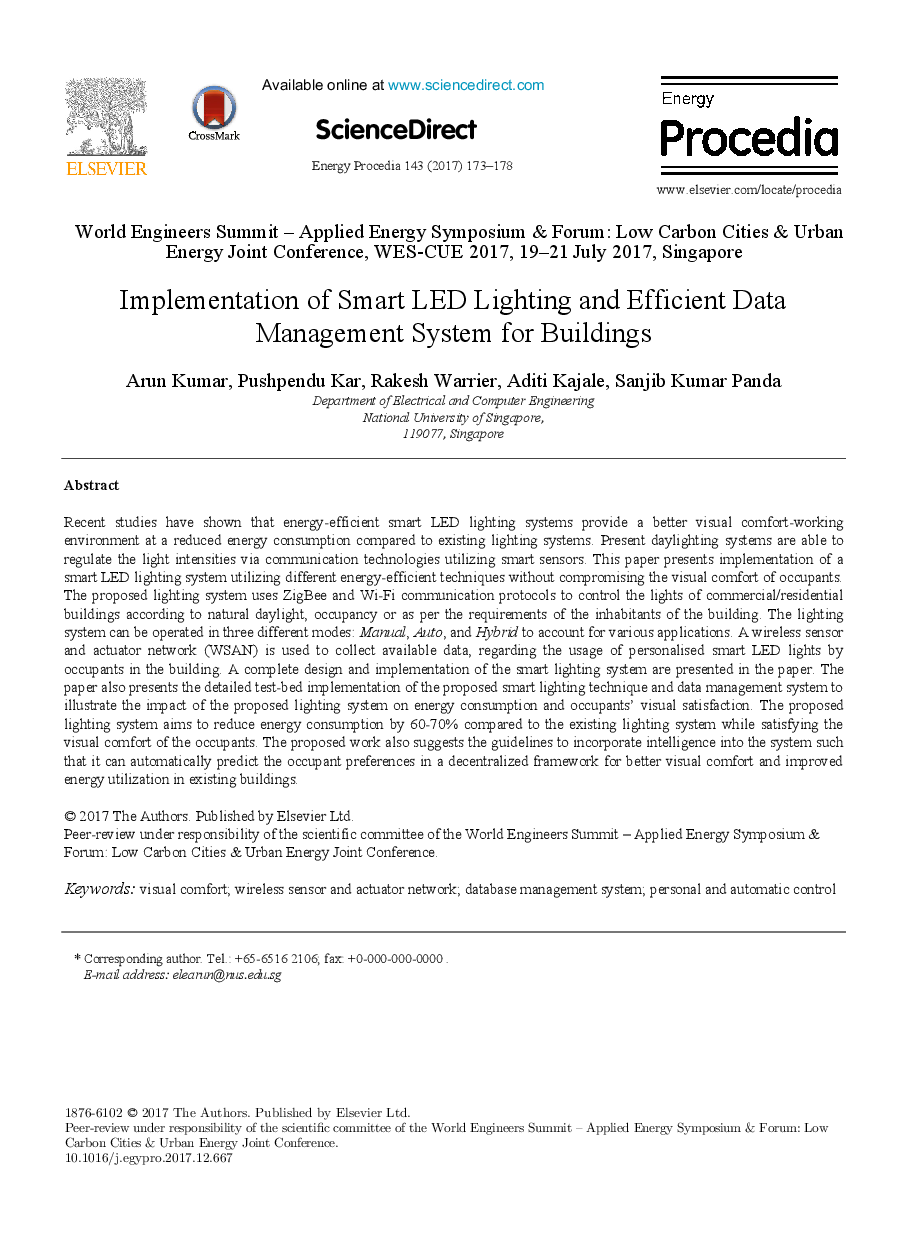ترجمه فارسی عنوان مقاله
اجرای سیستم روشنایی هوشمند و سیستم مدیریت داده های کارآمد برای ساختمان ها
عنوان انگلیسی
Implementation of Smart LED Lighting and Efficient Data Management System for Buildings
| کد مقاله | سال انتشار | تعداد صفحات مقاله انگلیسی |
|---|---|---|
| 100347 | 2017 | 6 صفحه PDF |
منبع

Publisher : Elsevier - Science Direct (الزویر - ساینس دایرکت)
Journal : Energy Procedia, Volume 143, December 2017, Pages 173-178
ترجمه کلمات کلیدی
آسایش بصری، حسگر بی سیم، درایور شبکه، سامانهی مدیریت پایگاه داده، شخصی، کنترل اتوماتیک،
کلمات کلیدی انگلیسی
visual comfort; wireless sensor; actuator network; database management system; personal; automatic control;

